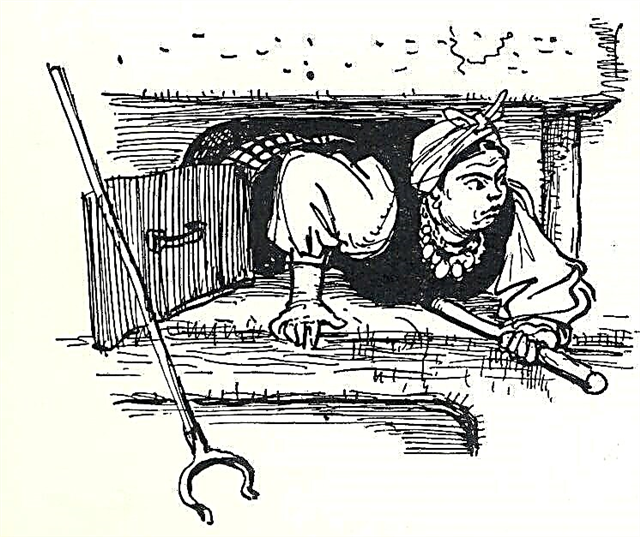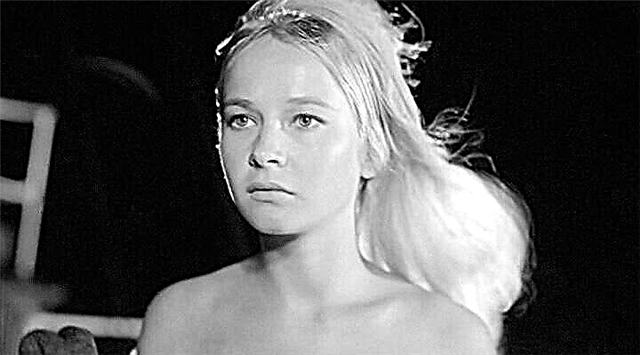Ivan Alekseevich Bunin is rightfully considered an outstanding figure in Russian literature, his works are distinguished by subtle psychologism and attention to detail. In such small works as Snowdrop, his writing talent is fully revealed - the writer makes the reader see in the story something more than the text itself.
History of creation
“Snowdrop” was written in 1927, at which time the writer lived in Paris. Only six years later, Ivan Alekseevich received his famous Nobel Prize, but already at that time Bunin wrote many of his famous works. In the same year, the author began his novel “The Life of Arseniev” - the writer believed that it was for this work that he received the Nobel Prize.
In the twenties Bunin wrote very little, these were his first years of life in France, the writer's thoughts were occupied with thoughts about the difficult fate of post-revolutionary Russia. Very little is known about the writing of Snowdrop itself; usually such stories are written quickly, at the call of the heart, and come out short and often very accurate. They are not included in the list of the best works of the author, but sometimes they touch them to the core.
Genre, direction
Like most of Bunin's works, this story refers to the realistic direction of literature. The writer faithfully and accurately reproduces reality, the life of real people, shows the reader real experiences in which the true essence of the human soul is reflected.
The genre of the story allows Bunin to concentrate in the work on the main thing, this is the best form for conveying several important thoughts; the reader focuses on the narrative and does not miss important details. During his writing career, he masterfully mastered the ability to write in the now complex and unpopular story genre.
Essence
Sasha is a ten-year-old boy, he lives with Aunt Varey, who replaces the mother with the child. The main events from the book are the meeting of the child with his father, he worked on the estate and came only occasionally. This time the man came to Shrovetide, and for Sasha this is a double celebration - after all, the boy looks forward to the pope's arrival every time.
The child spends the weekend with his father, he at this time lives in the courtyard, in his father’s room is always stuffy and smoked. In the mornings they head to the inn for breakfast. But Monday comes: “Goodbye, Sasha, Christ is with you,” the father says and leaves again. The plot of the story is described in more detail in summary.
The main characters and their characteristics
The story is not in vain called "Snowdrop". This is a simple metaphor that reveals the author’s attitude to the main character. Sasha is pure in soul, he is open to the world. Although he has to live with strangers, he sincerely loves his father. He, like a beautiful flower, must grow and break through the snow - the coldness of the parent in relation to him.
Father clearly contrasts with the image of Sasha, he is surrounded by a hubbub, cigarette smoke and stuffiness. Against his background, the boy's innocence and purity is even more clearly visible. The father is rude and uncouth, his pastime cannot be called conscious, he, like all people in the tavern, slowly floats along the course of life without a single thought. The father and the whole middle-class bourgeois adult appear in the story in the form of the very “snow” through which Sasha must break through without losing his natural beauty.
Themes and Issues
- Petty bourgeois. Bunin in this work expresses boundless sadness for people, exposing the mean and hateful philistine life. The indefinite beginning of the story sets a definite tone for the whole work: “There used to be Russia, there was a snowy district town, there was a Shrovetide - and there was a schoolboy Sasha.”
- Fathers and Sons. Boy Sasha seems like a foreign creature among the rumble and crash of the adult world. The child is oppressed by this atmosphere, but he only feels one thing - love for his father. He awaits his arrival with trepidation and is unusually upset when he leaves. Bunin shows that Sasha is imbued with philanthropy and humility, the writer carefully compares the boy with an angel: "He is happy, he is fresh and pure, like an angel."
- Indifference. The father does not devote time to raising a child, he is only concerned with matters, and the boy grows abandoned. Unfortunately, he does not receive affection and warmth, which he is reaching for with all his might.
- Loneliness. The child is still small, but already knew the bitterness of loneliness. Life with strangers can not be compared with family life, so the boy is a pity for the reader. It seems that the author involuntarily associates himself with him: he also lost his Motherland and also yearns for her.
The main idea
It was in Sasha, in this charming “snowdrop,” that the main idea of the author was laid. In this case, the events taking place in the story itself fade into the background. With the help of a simple plot, Bunin seems to require the reader to look into the eyes of a bright and intelligent boy named Sasha.
The writer hopes for a new generation, which should rise above the old world and finally bloom. The author believes that the callous world will not break this beautiful and fragile flower. Bunin points to the tragic difference of generations, the youngest of which is suffocating in smoke, languishing in the stuffiness of a huge inn. In this symbolism is the meaning of the book. Someday, new people will shake off the snow and straighten up to their full height to make the world a better place.
What does it teach?
Ivan Alekseevich Bunin in his short story teaches the reader to appreciate and notice the beauty of the nascent mind. This is a call to the "snowdrops" - they need to break free and perk up. First of all, this is a story about love, about sincere love for a person as a creature.
It is incredibly important to draw a peculiar author's parting from this work - Bunin wants the world of new people to come. This generation should supplant everything outdated and vain, only new people will be able to illuminate the world with their hearts.












